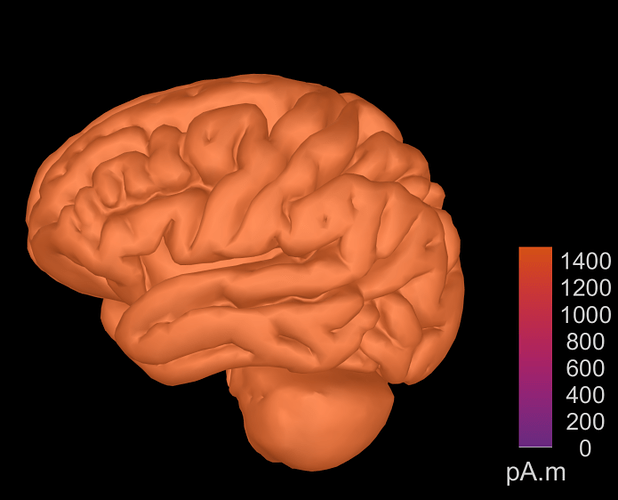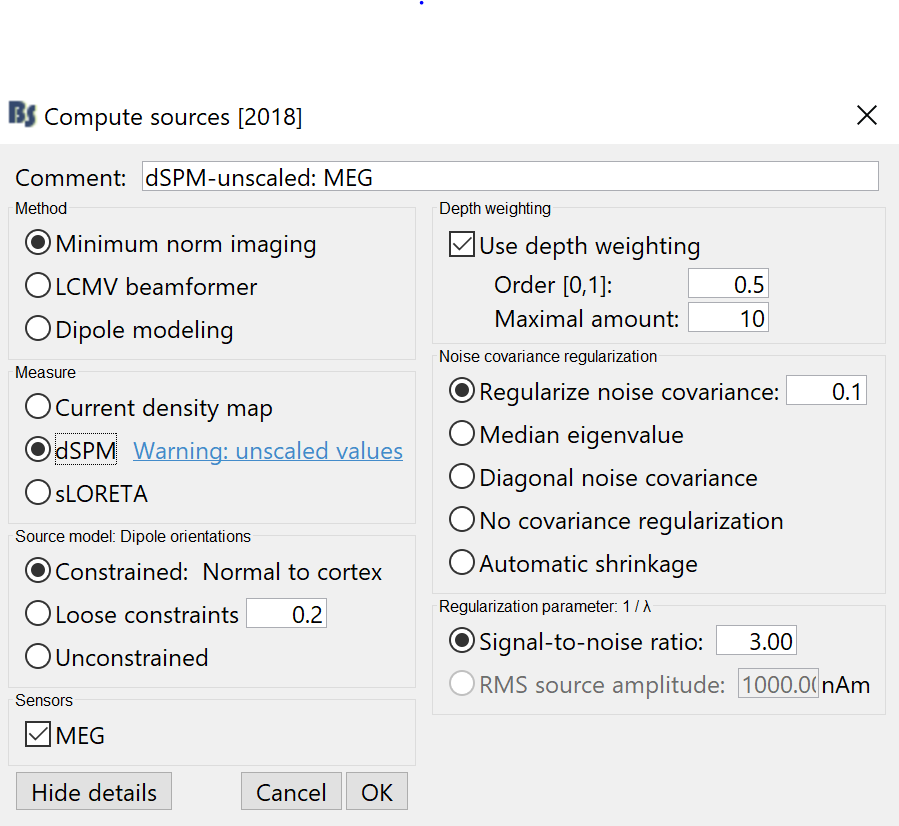These are the scripts I used to calculate the noise and data covariance matrices.
% Process: Noise covariance matrice
sFilesDataNoise = bst_process('CallProcess', 'process_noisecov', sFilesEpochs, [], ...
'baseline', [-0.5, 0], ...
'datatimewindow', [0, 2], ...
'sensortypes', 'MEG', ...
'target', 1, ... % Noise covariance (covariance over baseline time window)
'dcoffset', 1, ... % Block by block, to avoid effects of slow shifts in data
'identity', 0, ...
'copycond', 0, ...
'copysubj', 0, ...
'copymatch', 0, ...
'replacefile', 1); % Replace
% Process: Data covariance matrice
sFilesNoise = bst_process('CallProcess', 'process_noisecov', sFilesEpochs, [], ...
'baseline', [-0.5, 0], ...
'datatimewindow', [0, 2], ...
'sensortypes', 'MEG', ...
'target', 2, ... % Data covariance (covariance over data time window)
'dcoffset', 1, ... % Block by block, to avoid effects of slow shifts in data
'identity', 0, ...
'copycond', 0, ...
'copysubj', 0, ...
'copymatch', 0, ...
'replacefile', 1);

